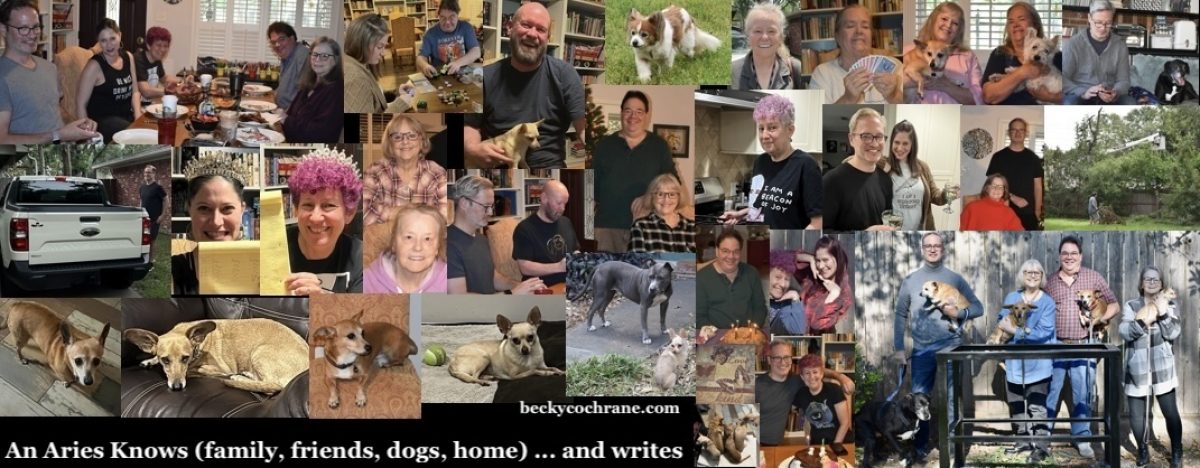There wasn’t a single panel I attended at Saints and Sinners that didn’t give me a lot to think about, and this was my first on Saturday morning: AIDS Is Still With Us: Telling An Essential Story.
Moderated by Jameson Currier (Where the Rainbow Ends; The Wolf at The Door; Dancing on the Moon), the panelists were Lewis DeSimone (Chemistry; The Heart’s History), Trebor Healey (Through It Came Bright Colors; A Horse Named Sorrow; Faun; Sweet Son of Pan), Daniel M. Jaffe (Jewish Gentle and Other Stories of Gay-Jewish Living; The Limits of Pleasure; One-Foot Lover), and Andrew Holleran (Dancer from the Dance; Nights in Aruba; The Beauty of Men; Grief).

In the early and mid 1990s, the years when I was an AIDS caregiver to several friends, many of the above books and others were essential in helping me understand the politics and social and personal implications of AIDS, particularly as it affected gay men. In fact, sometimes their voices and the stories they told helped me keep my wits in a world gone mad. Fiction and memoir also gave my friends and me a place to begin sharing a language and context with one another. Those books broke down barriers and gave faces and names to what to many people were just statistics that they believed had no impact on their lives.
I remember after Steve R died how I attempted to write several different short stories, and I believe even the beginnings of a novel or two, but I simply couldn’t do it. Everything was too raw, too close. But I think all of those stories–from the caregivers, the ill, the healthy positive, the partners and friends–both old and current, still need to be told. I think there’s public complacency, a sense that because new drugs and treatments have made HIV manageable, that no one wants to read about it anymore. But the compelling stories of populations with rising numbers of HIV infections and AIDS illnesses still have something to tell us about poverty, marginalization, medical care and drug access, and health crises–because AIDS/HIV surely won’t be the last.
I’m grateful these writers and others are still telling the stories. They encourage me to feel that my own voice might join the conversation one day.

Based on what you’ve said, I want to read Holleran’s work.
Having had such a sheltered life, I haven’t been close to anyone who’s died from an AIDS-related illness – thank goodness. I think society has become complacent with the HIV treatments now available and it is seen as a manageable disease. I find it hard to believe that some guys actually seek to become infected as a kind of badge of honour. Having worked as a LGBT helpline volunteer for some years I know how devastating a positive diagnosis can be or simply waiting for a result. The fight for gay rights and equality will never end I believe – laws can change, but prejudice will always be there – and not just directed at gay people.
Trebor Healey seems like such a nice man. I had a lovely e-mail correspondence with him last year.
Andrew Holleran’s works are among my favorite books of all time. As for Trebor, I often joke about his mesmerizing effect on me and how if he formed a cult, I’d join it.
I think the things you say are among reasons why people should still write honestly about HIV/AIDS. We are human and we make bad choices–ALL of us–those times we don’t put on our seat belts or take shortcuts in places we shouldn’t be walking or light up that cigarette or drink too much or eat the wrong foods or drive fifteen miles over the speed limit. Because/when HIV is caused by sexual transmission, however, it elicits all kinds of moral judgments, and then there are the ethics around being honest about positive status, not infecting others, etc. When all that is added to prejudice about race, gender, and sexual orientation–recipe for disaster. And it’s a disaster that hasn’t gone away, even if people don’t want to talk about it anymore.
Absolutely. It feels like it’s been swept under the carpet in recent years and it really shouldn’t be.
I’m anxious when I get tested, even though I regard doing so as a no-brainer health checkup. But, last year in DC, they had a free screening van during the pride festival. I felt like a laboratory mouse in a trailer park. Then, I became anxious, because what if the procedure was actually in reverse? They collected all sorts of demographic information about me, pricked my finger with a rectangle box-and-pin, stuffed it all in a plastic bag and gave me a number to check back with in a few hours.
I had no confidence in the people performing the test. And, when I came back a few hours later for the result, they didn’t even look at me nor my number. They just said I’m OK. Which actually made me feel worse, because I felt like there was no validity check. Or, maybe there have been that many negative results? Or, maybe it was for “research” instead.
It’s amazing what a change in environment does!
That all sounds crazy and not at all professional. I don’t blame you for your lack of confidence in them.
And good for you for considering regular testing a part of your health care plan. Knowledge is power!